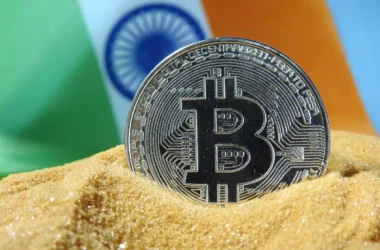By Maj Gen (Dr) TS Sidana, AVSM, VSM ( Retd )
The laughter, sense of humour, camaraderie, banter and the smiles are becoming rarer in today’s world. Laughter is the best medicine; Humour is mankind’s greatest blessings; or even Smile is the beauty of soul are everyday quotes, but alas they have just become homilies while writing essays or making speeches or psychologists counselling their patients. There is far too much anxiety and depression caused by over expectation, ambitiousness and sense of underachievement.
Fear of Missing Out or FOMO is the new buzzword of the Z generation. War, conflict, terrorism and strife with all their gory details have been brought right into our bedrooms and on our couches. They instil a sense of latent fear and uncertainty that acts in unknown ways on the human mind. “Will Russia Ukraine war turn into a World War or will there be a nuclear conflict?” is an often-discussed question even amongst a population that hardly pays attention to global issues. Local governance and law and order issues themselves become national and global issues because of hyper active and tech driven media.
Other day there was a prominent article about how Japanese are educating their people to start smiling again. A company named “Egaoiku” (meaning “smile education”) has been holding seminars to bring back the smiles after the Covid times. While masks, staying at home, illness and fear of contracting the disease have had their effect but the smiles have been diminishing for the last many years. Some trainers have been using biting exercises using a straw to retrain the facial muscles because the brain is no longer sending the smile signals. Then there is atrophy that makes muscles or tissues that are not used for a long time becoming weak and finally redundant.
There is a new occupation that keeps almost everyone engaged and that is social media, it starts with Good Mornings and can cover any topic under the Sun or even Stars and galaxies may go to Black Hole and aliens. The beauty is that everyone wants to share something without actually reading what others are sharing. Worst is when it becomes political or communal or delves into contested ideas. Once, the dual starts, then it doesn’t tend to finish and becomes yet another cause of anxiety. Orthodoxy and wokeism have new adherents causing further polarisation, over and above politics and religion. OTT and never-ending streaming of serials, movies, YouTube videos and the sports channels inhibit people from interacting with others or sharing their own genuine experiences. Rather, exhibitionism, self-promotion and superlativism are now full-time occupations because everyone seems to be so attention deficit that unless it is offtrack, it is passe. As per recent research in the West, depression and anxiety have been increasing world over, ever since 1990 when the first accurate measurements started being recorded. Some experts have hypothesized about the ‘Loneliness Pandemic’ and have tried to quantify physical consequences of poor connection like 29% increased risk of heart disease; a 32% increased risk of stroke; and a 50% increased risk of developing dementia for older adults.
“It’s hard to put a price tag on the amount of human suffering that people are experiencing right now,” said the US Surgeon General Dr Vivek Murthy, a few days back. He has issued a national advisory that outlines the framework for a new strategy based on six foundational pillars viz Strengthening social infrastructure, that includes things like parks and libraries as well as public programs; Enacting pro-connection public policies at every level of government, including things like accessible public transportation or paid family leave ; Mobilizing the health sector to address the medical needs that stem from loneliness ; Reforming digital environments to “critically evaluate people’s relationship with technology.” ; Deepening the knowledge through more robust research ; and Cultivating a culture of connection. Fortunately, in India, our family ties are reasonably strong, digital is taking over but still not all prevalent and ambitiousness is tampered with reality. But all this is fast changing.
So, how do we bring the smile back? It is not an easy ask, where some get sad and angered, even when India is positioned lower in the Happiness Index or comedians are put behind bars for lampooning the politicians. First, of course is to recognise it as a priority, look at it segment by segment and start making life smoother and connected in the family, School, Colleges and Universities. Government and Industry should provide amenities, recreation and entertainment avenues as it will increase productivity and achieve a larger social purpose. Healthy individuals are also happy individuals and there is a need to pay attention to the nutrition and health infrastructure. Improving the tolerance levels to diversity of views and reducing anger has to be given due priority. Last but not the least is restricting the influence of social media what some call as ‘Information Disorder’ by sensitising the populace, education, nudging and if need be, by regulation (not necessarily by the Government).
The author is an Indian Army veteran and has served in various parts of the country and in Africa in varied command, staff and technocratic appointments. Presently, he is a Visiting Professor in School of Planning and Architecture and an Assessor with National Accreditation Board of Quality Council of India, New Delhi.
Disclaimer: Views expressed are personal and do not reflect the official position or policy of Financial Express Online. Reproducing this content without permission is prohibited.
Fear of Missing Out or FOMO is the new buzzword of the Z generation. War, conflict, terrorism and strife with all their gory details have been brought right into our bedrooms and on our couches.










